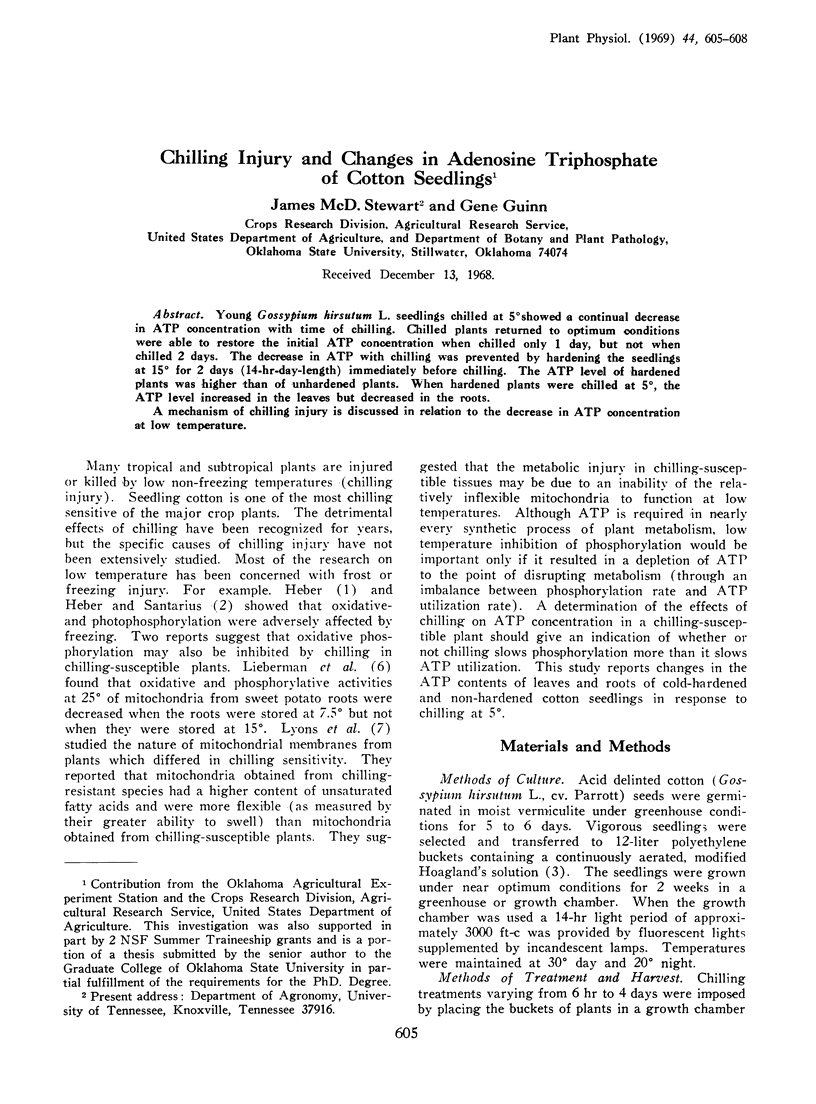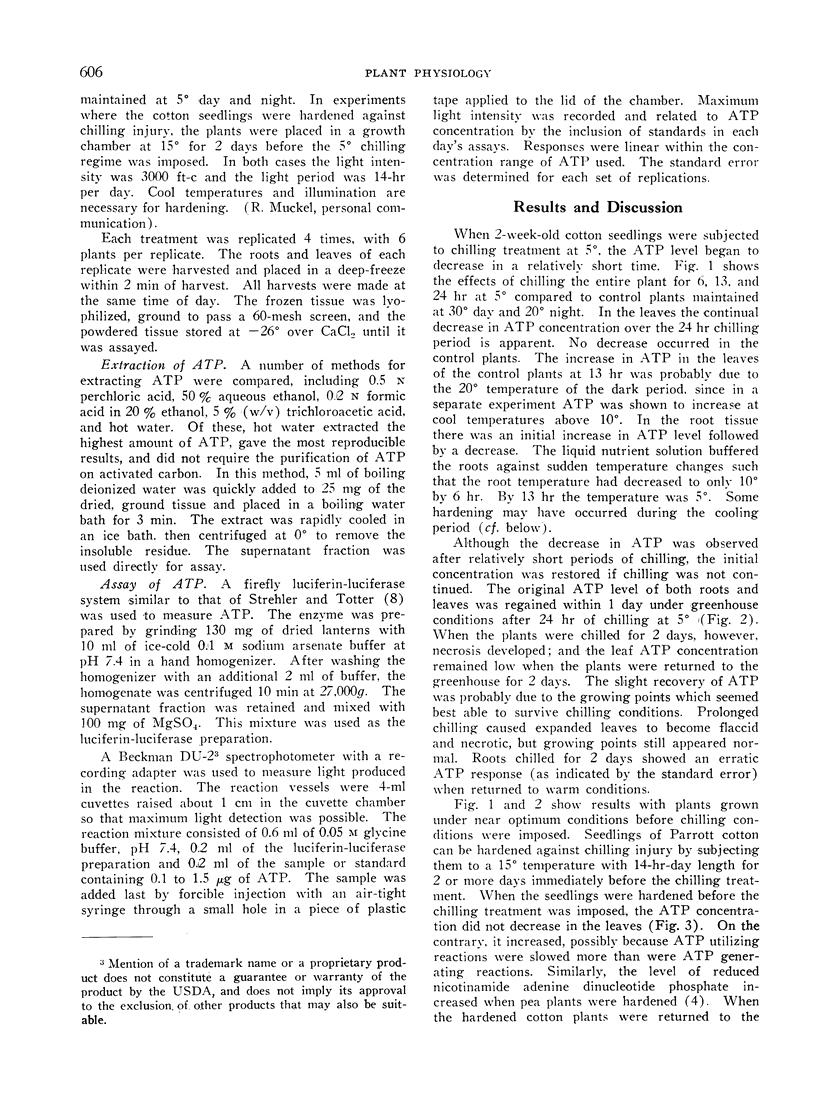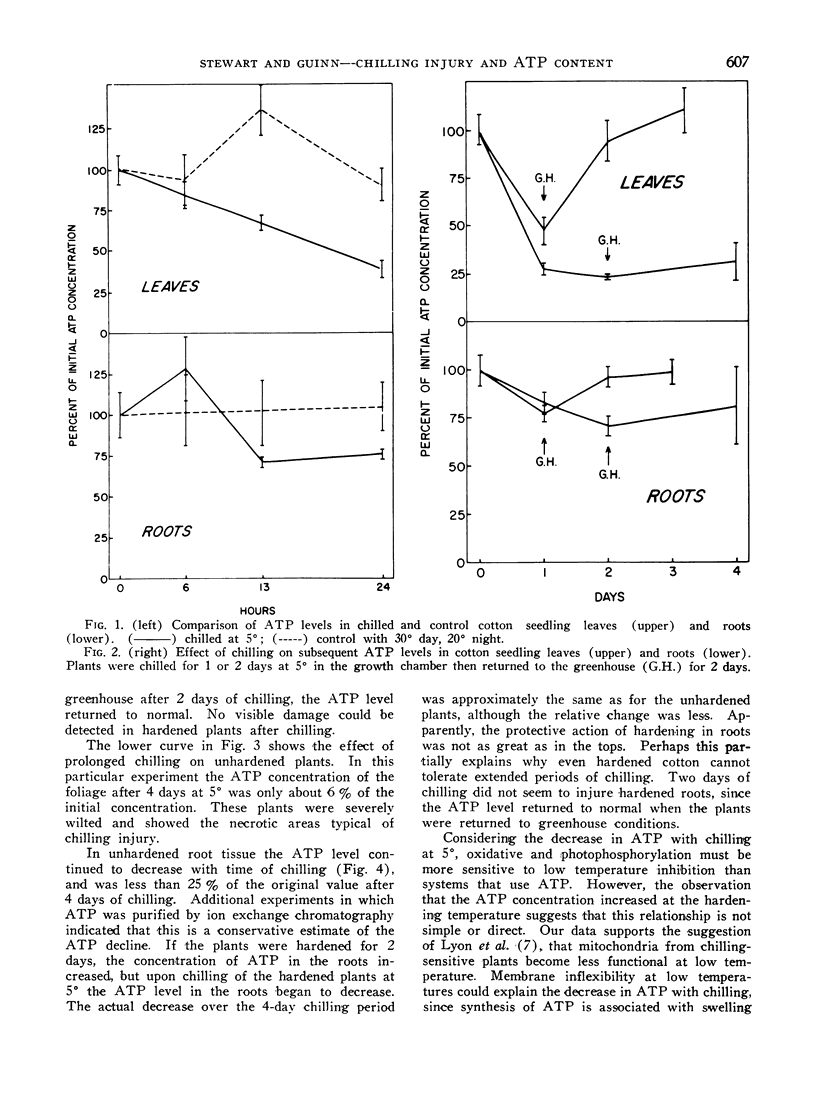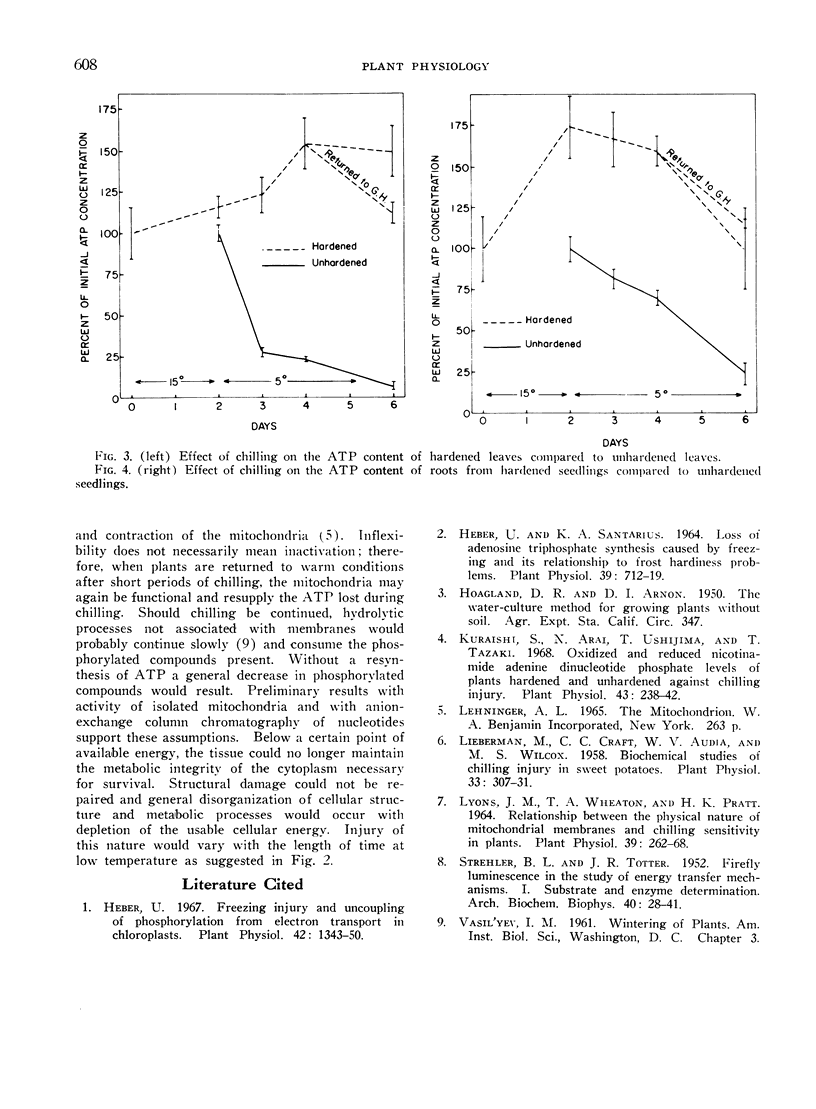Abstract
Young Gossypium hirsutum L. seedlings chilled at 5° showed a continual decrease in ATP concentration with time of chilling. Chilled plants returned to optimum conditions were able to restore the initial ATP concentration when chilled only 1 day, but not when chilled 2 days. The decrease in ATP with chilling was prevented by hardening the seedlings at 15° for 2 days (14-hr-day-length) immediately before chilling. The ATP level of hardened plants was higher than of unhardened plants. When hardened plants were chilled at 5°, the ATP level increased in the leaves but decreased in the roots.
A mechanism of chilling injury is discussed in relation to the decrease in ATP concentration at low temperature.
Full text
PDF



Selected References
These references are in PubMed. This may not be the complete list of references from this article.
- Heber U. W., Santarius K. A. Loss of Adenosine Triphosphate Synthesis Caused by Freezing and Its Relationship to Frost Hardiness Problems. Plant Physiol. 1964 Sep;39(5):712–719. doi: 10.1104/pp.39.5.712. [DOI] [PMC free article] [PubMed] [Google Scholar]
- Heber U. Freezing injury and uncoupling of phosphorylation from electron transport in chloroplasts. Plant Physiol. 1967 Oct;42(10):1343–1350. doi: 10.1104/pp.42.10.1343. [DOI] [PMC free article] [PubMed] [Google Scholar]
- Kuraishi S., Arai N., Ushijima T., Tazaki T. Oxidized and reduced nicotinamide adenine dinucleotide phosphate levels of plants hardened and unhardened against chilling injury. Plant Physiol. 1968 Feb;43(2):238–242. doi: 10.1104/pp.43.2.238. [DOI] [PMC free article] [PubMed] [Google Scholar]
- Lieberman M., Craft C. C., Audia W. V., Wilcox M. S. Biochemical Studies of Chilling Injury in Sweetpotatoes. Plant Physiol. 1958 Sep;33(5):307–311. doi: 10.1104/pp.33.5.307. [DOI] [PMC free article] [PubMed] [Google Scholar]
- Lyons J. M., Wheaton T. A., Pratt H. K. Relationship between the Physical Nature of Mitochondrial Membranes and Chilling Sensitivity in Plants. Plant Physiol. 1964 Mar;39(2):262–268. doi: 10.1104/pp.39.2.262. [DOI] [PMC free article] [PubMed] [Google Scholar]
- STREHLER B. L., TOTTER J. R. Firefly luminescence in the study of energy transfer mechanisms. I. Substrate and enzyme determination. Arch Biochem Biophys. 1952 Sep;40(1):28–41. doi: 10.1016/0003-9861(52)90070-2. [DOI] [PubMed] [Google Scholar]



